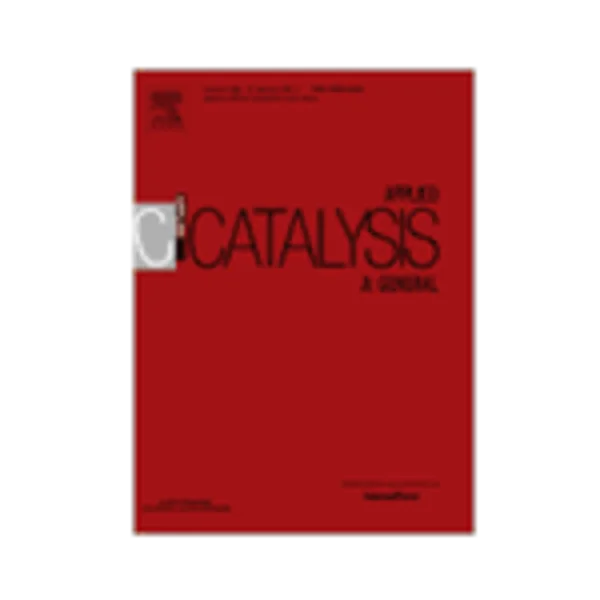-
the effect of zsm-5 zeolite acidity on the catalytic degradation of high-density polyethylene using simultaneous dsc/tg analysis
جزئیات بیشتر مقاله- تاریخ ارائه: 1392/07/24
- تاریخ انتشار در تی پی بین: 1392/07/24
- تعداد بازدید: 1243
- تعداد پرسش و پاسخ ها: 0
- شماره تماس دبیرخانه رویداد: -
in the present work, simultaneous thermogravimetric (tg) and differential scanning calorimetric (dsc) analyses were used to investigate the effect of the acidity of hzsm-5 zeolites on the catalytic degradation of high-density polyethylene (hdpe). the acidity of the zeolite was modified by ion exchange with sodium. the results obtained using hzsm-5 zeolites of varying acid strengths show the effect of increasing the acidity on the reduction of the degradation temperature. the addition of sodium to hzsm-5, by ion exchange, results in a decrease of the acid strength of the catalyst and an increase in the observed degradation temperature from 402 to 465 °c.the simultaneous use of the signals from the tg and dsc allowed the development of a kinetic model that is able to accurately describe all the runs performed, both the thermal and the catalytic degradation of the polymer. the kinetic parameters obtained clearly revealed the reduction in the activation energy due to the presence of the catalyst and its relation to the overall acidity of the samples. the gases evolved from the pyrolysis of polyethylene were also analysed using gas chromatography, and it was also found that volatile product selectivity changes with the catalyst acidity.
the fact that the overall activity for the catalytic cracking of hdpe on these zeolites varies with internal acid strength of the zeolite indicates that the inner surface of these zeolites participates in this reaction despite the fact that the reactant molecules are extremely large.
مقالات جدیدترین رویدادها
-
استفاده از تحلیل اهمیت-عملکرد در ارائه الگوی مدیریت خلاقیت سازمانی و ارائه راهکار جهت بهبود
-
بررسی تاثیر ارزش وجوه نقد مازاد بر ساختار سرمایه شرکت های پذیرفته شده در بورس اوراق بهادار تهران
-
بررسی تأثیر سطح افشای ریسک بر قرارداد بدهی شرکت های پذیرفته شده در بورس اوراق بهادار تهران
-
بررسی تأثیر رتبه بندی اعتباری مبتنی بر مدل امتیاز بازار نوظهور بر نقد شوندگی سهام با تأکید بر خصوصی سازی شرکت ها
-
تأثیر آمیخته بازاریابی پوشاک ایرانی بر تصویر ذهنی مشتری پوشاک ایرانی (هاکوپیان)
-
جهت یابی مسیر رودخانه های فصلی در حوزه رودخانه کارون
-
evaluating response modification factors of tadas frames
-
optimisation of glycogen quantification in mixed microbial cultures
-
teacher trainer and syllabus; a case study
-
acetoin production enhanced by manipulating carbon flux in a newly isolated bacillus amyloliquefaciens
مقالات جدیدترین ژورنال ها
-
مدیریت و بررسی افسردگی دانش آموزان دختر مقطع متوسطه دوم در دروان کرونا در شهرستان دزفول
-
مدیریت و بررسی خرد سیاسی در اندیشه ی فردوسی در ادب ایران
-
واکاوی و مدیریت توصیفی قلمدان(جاکلیدی)ضریح در موزه آستان قدس رضوی
-
بررسی تاثیر خلاقیت، دانش و انگیزه کارکنان بر پیشنهادات نوآورانه کارکنان ( مورد مطالعه: هتل های 3 و 4 ستاره استان کرمان)
-
بررسی تاثیر کیفیت سیستم های اطلاعاتی بر تصمیم گیری موفق در شرکتهای تولیدی استان اصفهان (مورد مطالعه: مدیران شرکتهای تولیدی استان اصفهان)
-
مدلی برای برندسازی سامانه منابع انسانی با رویکرد داده بنیاد
-
ارائه مدل مکان یابی-تخصیص در شبکه زنجیره تأمین خون در حالت عدم قطعیت با در نظر گرفتن اختلال و ارتباط عرضی بین بیمارستان ها
-
سیر تحول جرم اختلاس درنظام کیفری ایران
-
chemical investigation of drilling flowers, types of contaminations and ways to treat them
-
urban rights and sustainability in latin-america: first steps towards urban justice operationalization




سوال خود را در مورد این مقاله مطرح نمایید :